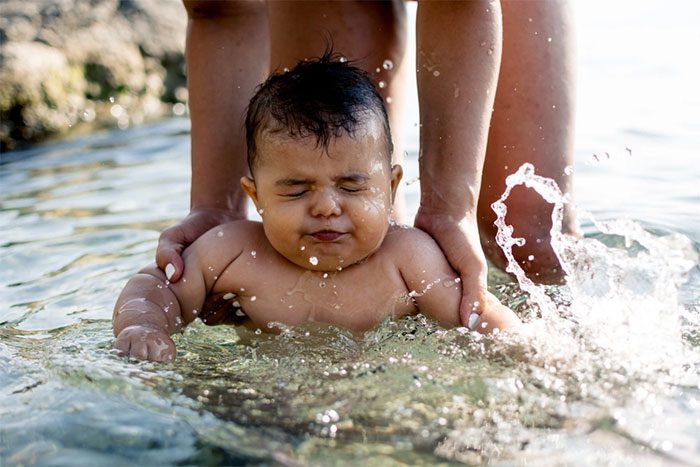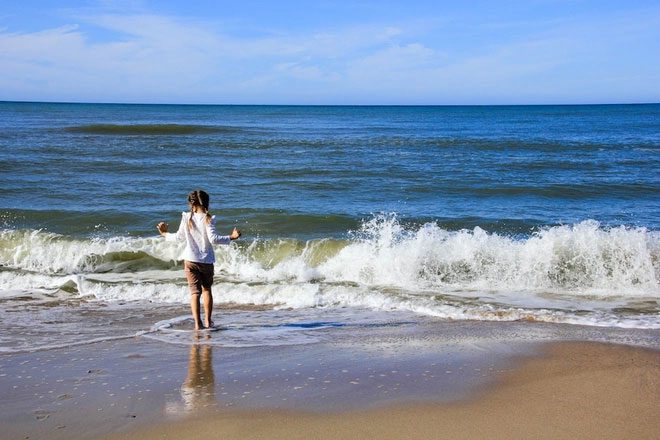According to a new study, children who spend more time at the beach or near lakes will have better mental health as they grow up.
As reported by the South China Morning Post, research across 18 countries shows that spending time in “green spaces”, such as near oceans, rivers, and lakes, can enhance mental health.

Individuals who recall childhood experiences at beaches, rivers, and lakes are more likely to value natural settings. (Photo: Pexels).
Experts have explored the potential benefits of green spaces after evidence suggested that spending time in these environments is linked to improved mental health.
A survey coordinated by the European Centre for Environment and Human Health at the University of Exeter asked 15,000 people across 14 countries in Europe, Canada, Australia, and Hong Kong about their childhood experiences.
Participants were asked to recall their experiences with “green spaces” until the age of 16, including how often they visited these areas, their level of enjoyment, and how frequently their parents allowed them to play in those spaces.
They were also questioned about their most recent exposure to green spaces in the past four weeks and their mental health over a two-week period.
Published in the Journal of Environmental Psychology, the study found a connection between spending more time in green spaces and improved mental health in adulthood. This is because individuals with more green space experiences in childhood placed greater intrinsic value on natural settings and were more likely to return to the ocean as adults.

For many, being near water causes discomfort or fear simply because they have never learned to swim. (Photo: Pexels).
Valeria Vitale, a PhD candidate at Sapienza University of Rome and the lead author of the study, commented: “In an increasingly technological and industrialized world, it is important to understand how childhood experiences relate to happiness later in life.”
“Our findings suggest that fostering familiarity and confidence around green spaces during childhood can stimulate the inherent joy of nature and encourage people to seek out those experiences,” added author Valeria Vitale.
Experts also noted that many children do not grow up near water because these environments can pose risks to children, and parents must exercise caution.
Dr. Leanne Martin from the University of Exeter stated: “This study shows that helping children feel comfortable in aquatic environments and developing skills such as swimming at a young age can provide many previously unrecognized benefits.”



















































